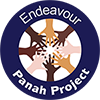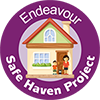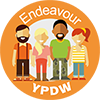YPDVA
How the Young Person's Domestic Violence Advice Service will work for you...

We can help with loads of issues like being angry, understanding your feelings and what is happening in your life.
We may be able to help you sort out problems at college or work. If you want us to, we can talk to college or work on your behalf.
We can help with a counsellor – someone to talk to and share your problems with.
We can help just by listening; you may find that talking to us can help.
We know…
Some problems get worse if you ignore them. Feelings can be really powerful – there is no right or wrong way to feel.
What is happening to you can be hard to talk about – this may be making you angry or depressed.
Download Service Leaflet - more details
What we offer...
The Young Person’s Advice Service is a personal service designed to support victims/survivors whose cases are subject to the MARAC process (Multi- Agency Risk Assessment Conference).
If you have been identified as ‘being at risk’ by the MARAC process, you will be contacted by a Young Person’s Advisor.
If you accept their services you will first of all meet with the advisor on a one-to-one basis to discuss your options.
As a result of this meeting there will normally be a safety and support plan made with you.
Actions undertaken by your advisor will normally involve contacting all the MARAC agencies for you. Your advisor will also act as your representative at the MARAC meetings, telling them your thoughts and informing you of any plans arising from the meeting.
One single point of contact...
Your advisor will be a single point of contact for you and ALL other agencies to improve your safety. You will get help with:
- Risk assessment
- Risk management
- Safety planning
- Initial crisis support – including information on your options
- Referral to other local agencies
- Assistance with other services, eg. forced marriage
- Support throughout the Criminal Justice Process
Your referral to MARAC and how you become a subject…
Recently you may have completed a risk assessment with an agency who is working with you e.g. your Health Visitor. As a result of that assessment you have been identified as being at HIGH RISK of experiencing ongoing domestic violence and a MARAC referral will have been made. A MARAC referral simply means that the information gathered during the risk assessment is sent to the MARAC co-ordinator and the IDVA service.
What will happen next...
Within 48 hours of receiving the referral, the Young Persons Advisor (YPA) will contact you regarding the service and arrange to visit you, at a convenient place for you.
MARAC will undertake the following actions…
At the next MARAC meeting actions are agreed that are designed specially to reduce the risk to you and your family. They must be completed, where possible, before the next monthly meeting. Your advocate will contact you to discuss these actions.
MARAC meets once a month – the following agencies attend:
- Adult Services
- Children’s Services
- Housing Providers
- Health Services
- IDVA Services
- Local Education Authority
- Police
- Probation
- Victim Support
- Women’s Support Services
- YOT
FAQs
What support can you offer me?
The YPDVA can support and advise you both emotionally and practically, we will be with your every step of the way offering you advice and guidance. We will complete Safety planning with you, target hardening for your property, court support, assistance with police, help and advice with civil orders if you do not want to report to the police. Liaising with partner agencies, help with housing and referral to refuge.
We Support you through the MARAC process and make sure your thoughts, feeling and views are represented.
What is MARAC?
MARAC is a multi-agency risk assessment conference, where a group of professionals work together to reduce the risk and safeguard you and your children. When your case is heard at MARAC you are deemed as high risk.
Will my partner know that I have asked you for help?
Your partner will not know you have asked us for support. Our service is strictly confidential and you will talk to a trained member of the team. The risk will be assessed and code words can be set up between yourself and your allocated worker so if your worker makes contact and you use the code, they will know that your partner is with you and cannot speak.
What is Clare’s Law?
Clare’s law is a scheme allowing police to disclose details of an abusive partner’s history of domestic abuse to their current partner.
Clare’s law has two main elements:
The ‘Right to Ask’ which allows members of the public, who may be a target of violence or abuse to request and receive information from the police a person’s history.
The ‘Right to Know’ which allows police to inform a potential victim on their own initiative.
What orders are available to protect me?
There are orders in place to protect you from an abusive partner.
A restraining order is a court order which stops your abuser from contacting you directly or indirectly or attending your place of work or home address, breaching this order is criminal offence. A restraining order is commonly used when there have been criminal proceedings against a person.
What is a non-molestation order?
A Non-Molestation Order is an injunction that you have to apply for if you want to be protected from your partner or ex-partner from using or threatening violence against you, intimidating or harassing you. If this is breached, it comes with a power of arrest.
What is an Occupation Order?
You can apply for an Occupation Order if you’re the victim of domestic abuse. The order will say who can live in the family home, who has the right to stay or who can be excluded from the home. Who can and cannot enter the surrounding area of the property.
Want to talk to us?
There are several ways you can contact us here at Endeavour. You can telephone Monday – Friday, 9.30am – 5.00pm
Tel: 01204 394 842
Email: info@endeavourproject.org.uk
Via Facebook messager service: www.facebook.com/EndeavourDAV/







